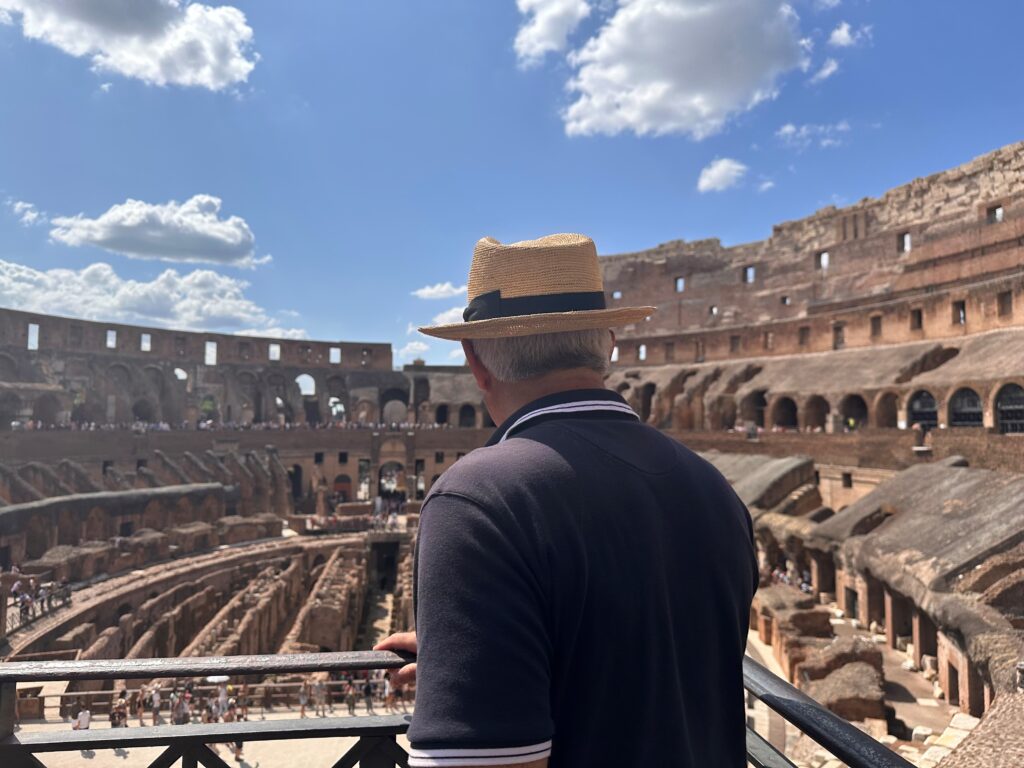
In law school, I learned to think about the world with an open mind, and I earned a useful professional credential. There were no courses in event safety, but over time I merged my legal education, my love of sports and entertainment, and my desire to leave the world a better place than I found it.
It feels immodest to call myself an “expert.” In some fields that have existed for a long time, a claim of expertise is based on receiving a degree or certificate, or perhaps working through an apprenticeship and orderly succession of jobs. There is no such straight and narrow path to event safety expertise in North America. Here’s how I know what I know.
Since 2002 I have been immersed in the operational issues that affect safety and security at events. My work gives me access throughout event spaces, and time with decision-makers and service providers on both show days and dark days. I read extensively in the codes, treatises, studies, and articles that bear on the event experience. I lead industry groups to broaden my understanding of different types of events and the professionals who grapple with their operational risks. I write and speak about these issues to publicly test what I’ve learned and help people make reasonable decisions under their own circumstances.
For live events, the risk and safety questions are largely the same whether one is talking about sports, entertainment, parades, corporate activations, or other activities that take place in public places. The answers, however, vary with the facts of each event. No one type of event is necessarily safer, or less safe, than any other. That is up to us.
Here’s how I try to help. I do primarily three kinds of professional work, in roughly equal proportions.
- Contracts. In the most traditionally legal part of my work, I draft and revise contracts for employers and contractors in all facets of the event industry. I know the traps common to event work, such as one-sided indemnity provisions, subjective cancellation clauses, and impenetrable force majeure language. The most comprehensive risk management is a robust contract.
- Safety Plans and Training. As a consultant, I help with risk assessments and create safety plans that apply industry guidance – some of which I have written – to comply with the applicable duty of care. I deliver staff training regarding crowd management, security and guest services, and even the First Amendment as it applies to venue operations.
- Expert Witness. When litigation has already begun, I use my comprehensive knowledge of the safety literature and operational realities of live events to explain and apply the standard of care to the facts of the case. I have served as an expert witness for plaintiffs and defendants throughout North America, including cases arising from the 2011 Indiana State Fair stage roof collapse, the 2017 Route 91 Harvest Festival shooting, and the 2021 Astroworld crowd crush. My expert reports are succinct and filled with citations to the record, and I work hard to be a ‘teaching witness’ in deposition or at trial.
Aside from my law practice, I spend a great deal of time advocating for safe practices in the event industry. Here is a summary of my work in conference rooms and classrooms.
For ten years, I was a member of the faculty of the International Association of Venue Managers’ Academy for Venue Safety & Security, for which I taught risk management. I enjoyed developing a wide circle of colleagues and friends among the operational leaders of stadiums, arenas, performing arts centers, convention facilities, and other public accommodations.
Following the 2011 Indiana State Fair stage roof collapse, I joined other industry professionals to form the Event Safety Alliance. I have been ESA’s Vice President since its inception, and I speak and write on its behalf to the media and other groups throughout North America.
In 2015 when I lived in Arizona, I created a course called “Risk Management in Venues,” a joint offering of Arizona State University’s Sandra Day O’Connor College of Law and W.P. Carey School of Business. We considered the duty of care and tort and contract claims arising from all kinds of live events. Among my many smart students, I am proud to now call several my colleagues in the event industry. When I moved back East in late 2022, one of my first trips was up to my alma mater, Boston College Law School, to teach first year Torts at the invitation of a former professor.

In 2019, I became one of the founders of the Global Crowd Management Alliance, which seeks to identify event safety standards that apply around the world. Just as gravity is the same everywhere, certain principles of crowd management are fairly universal. I served as GCMA’s first Deputy Chair.
In addition to teaching me concepts like causation, legal education also helped with written advocacy. Live events are governed by few statutes or regulations in North America, so I have contributed chapters in safety treatises, I lead the creation of authoritative American National Standards, and I have written for industry periodicals. Here is a small sample of my written work.
- The Event Safety Guide, Event Safety Alliance, First Edition, 2014 (editor)
- ANSI ES1.9-2020, Crowd Management (task group leader)
- NFPA Fire Protection Handbook, National Fire Protection Association, 21st Edition, 2023 (chapter author)
- ANSI ES1.40-2023, Event Security (task group leader)
- GCMA Field Guide to Crowds, Global Crowd Management Alliance, 2024 (editor and chapter author)
- ANSI ES1.42-2025, Parade Safety (task group leader)
- Handbook of Sport Security, National Center for Spectator Sport Safety & Security, 2025 (chapter author, forthcoming)
 An updated list of my writing, with links to materials that are not behind a paywall, appears on the Writing and Speaking page of this web site.
An updated list of my writing, with links to materials that are not behind a paywall, appears on the Writing and Speaking page of this web site.
